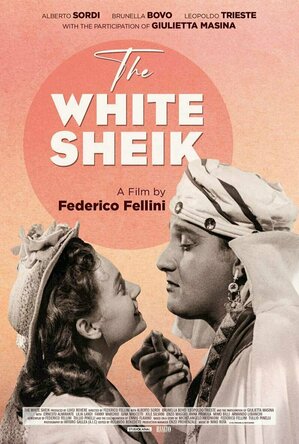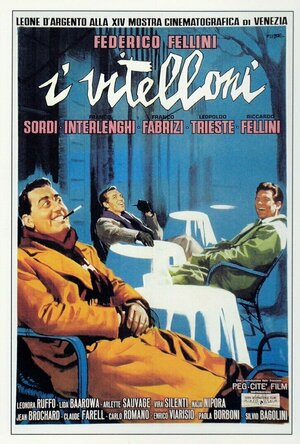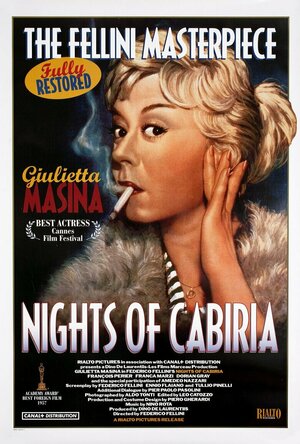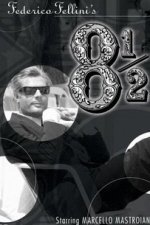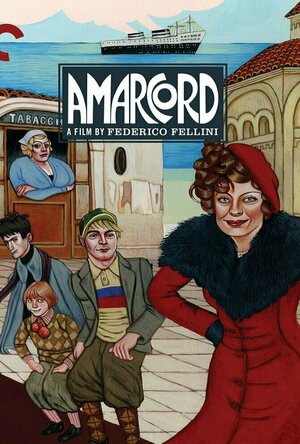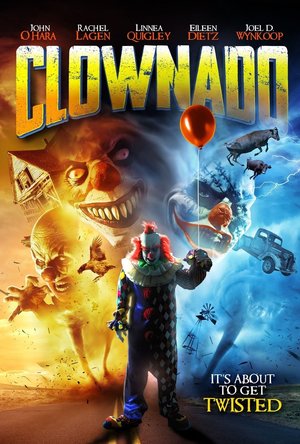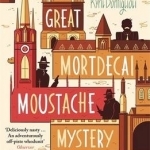
The Great Mortdecai Moustache Mystery: The Fourth Charlie Mortdecai Novel
Book
The Great Mortdecai Moustache Mystery - the fourth Charlie Mortdecai novel, soon to be a major film...
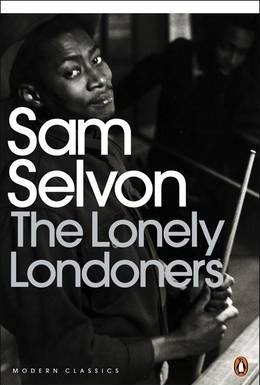
The Lonely Londoners
Samuel Selvon and Nasta Susheila
Book
Both devastating and funny, The Lonely Londoners is an unforgettable account of immigrant experience...
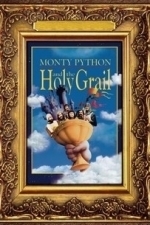
Monty Python and the Holy Grail (1975)
Movie Watch
Second big-screen outing for the Monty Python team. As King Arthur (Graham Chapman) rounds up the...
Greg Mottola recommended The White Sheik (1952) in Movies (curated)
Greg Mottola recommended I Vitelloni (1953) in Movies (curated)
Greg Mottola recommended Nights of Cabiria (1957) in Movies (curated)
Greg Mottola recommended 8 1/2 (1963) in Movies (curated)
Greg Mottola recommended Amarcord (1973) in Movies (curated)

DIRECTV NOW
Entertainment
App
DIRECTV NOW is your NEW standalone streaming service for Live TV and On Demand entertainment. Enjoy...
Darren (1599 KP) rated Clownado (2019) in Movies
Sep 2, 2019
Characters – Big Ronnie is the abusive husband and circus performer that killed Savanna’s lover and forced her into an embarrassing and humiliating performance for his show. After he becomes cursed, along with his fellow performers, he gets caught in the position of being able to transport through tornadoes, where they look to kill anyone and everyone. Savanna is the wife of Big Ronnie, she is trying to leave him, only to find her plan shattered and herself forced into performing in his circus, she puts the curse on them with a friend before going on the run, only for the circus performers not to leave her alone. Hunter is a trucker who picks us Dion, he knows the town well and is willing to do a good deed to help a stranger or a friend. Dion is the black Elvis impersonator who gets questioned about his look by everyone he meets, he helps along the way in the battle against the killer clowns.
Performances – The performances in this film are wildly over the top, which only helps with the tone of the film, John O’Hare as the leader of the clowns goes full evil in his performance, while Rachel Lagen shows just how much of a victim she is. When it comes to the rest of the cast, everybody knows who they are playing through this film.
Story – The story here follows a vengeful clown and his circus performers that use tornadoes to transport around the world in search for the woman that put the curse on them, as they look to pile up the body count, while everybody else is looking for a way to stop their evil once and for all. First thing is first, if you liked Sharknado, you will understand how to watch a film with this tone, you can’t take anything you see in this story seriously, but you aren’t meant to, we get a gimmick storyline, which does everything it needs to, to make you laugh at certain moments that are bonkers, that is designed to embrace this. We do get the idea of strangers working together, with a full range of colourful characters, as well as having plenty of bloodshed along the way, giving this story a fun grindhouse feel at times too.
Comedy/Horror – The comedy in this film comes from the over the top style of the kills and Big Ronnie’s actions, the horror comes from the bloodshed, with the clowns being over powered and will to kill with any means.
Settings – The film is set in a small town, which usually sees people pass through it, most characters know each other or have dealt with people behaving the same way, which shows us just how they will come together to look to survive the clownado.
Special Effects – The effects in the film are blood splatter heavy, they do tend to be extremely close up on the wounds which does add to the effects of shock value of the damage caused by the clowns.
Scene of the Movie – The first clownado.
That Moment That Annoyed Me – While filled with blood, the close ups of the body damage, sometimes, hide away from the reaction on the victims face.
Final Thoughts – This is a truly over the top idea, that like Sharknado works to bring one of the most popular horror figures, clowns to a new way to haunt people.
Overall: Purely Fun Horror Comedy.
